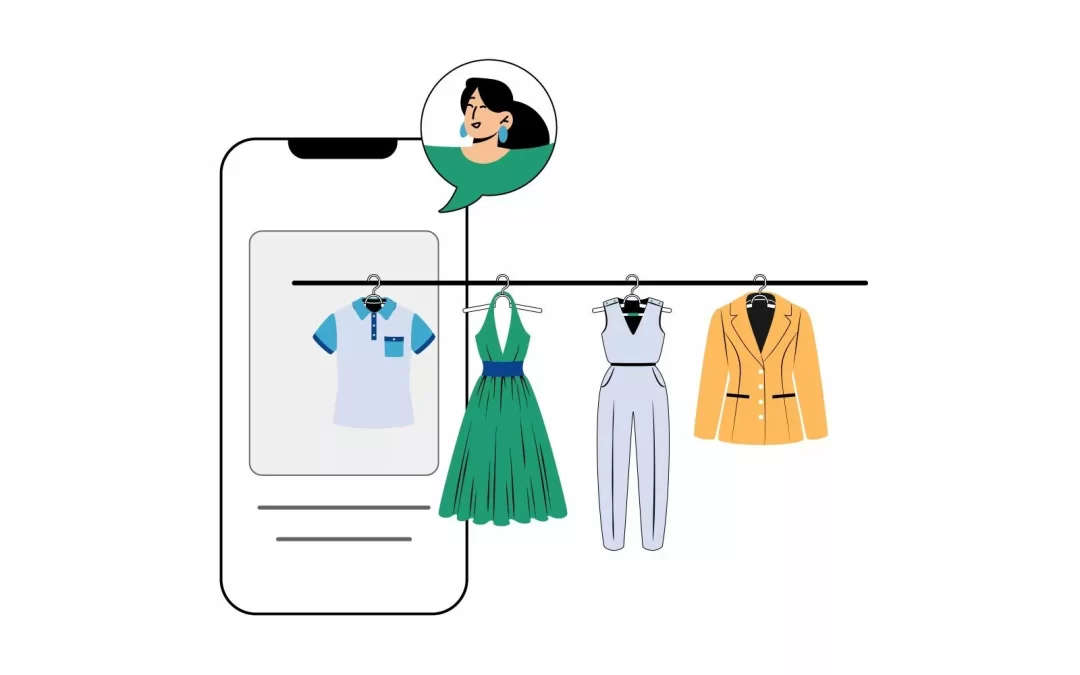February 5, 2024
In the fast-paced world of fashion, where trends evolve as quickly as the seasons, the influence of digital marketing can’t be overstated. Of course, the traditional runway shows, and monthly magazines editions are still prominent in the industry, but digital marketing has transformed how fashion brands operate. From how they connect with their consumers, to promoting their products, it has propelled brands into a new world.
Knowing & Personalizing For Your Target Audience
Having a deep understanding of your target audience is vital for creating the right strategies for your brand. While social media dominates the online space, targeting your audience based on different platforms is a sure way to bring success. From the data easily retrieved by social media platforms, they can use that information to ensure that the right message reaches the right person. Personalized experiences brings the consumer to feel more connected to the brand – feeling as if they aren’t just another number. They’re an individual who can be understood by their unique fashion choices.
Consistent Branding & Visuals
Creating a brand identity means having cohesive digital marketing strategies and looks. From social media platforms, to the website, to emails, all brands should have a consistent “look” they go for. This creates better brand awareness and authenticity to a fashions brand’s consumers. For consistent branding to be successful, high-quality visuals are at the top of that list. Since the fashion industry is visually driven, consumers need to see a brand’s products in the best way possible. All photos of products on the website and social media, as well as any videos that are posted, need to be of the highest quality – which, at this point, is just the expectation.
Influencer Marketing
Influencer marketing has taken over social media by force, especially in the fashion industry. Now more than ever, it’s easy to build relationships with influencers to expand reach. It’s important to someone that aligns with the company’s values and goals – their followers have the power to drive trends and influence opinions. Collaborators again bring authenticity and market their products in a more relatable way to the consumers. Most consumers find brands or products to try based on if their most-watched influencer finds it worthwhile. These influencers can range from celebrities to macro and micro influencers. Successful collaborations include Gigi Hadid with H&M, Youtuber Gretchen Geraghty with Lululemon, and Serena Williams with Nike.
AI/Virtual Reality Experiences
With AI and virtual reality, fashion brands have the power to include their consumers in what seem like exclusive events. The average consumer can’t attend week-long fashion shows, new release events, etc., but with this new technology in digital marketing, they can join instantly. Consumers can virtually try on clothing, sit front row at a fashion show, and attend other immersive online events with the click of a button. This strategy has increasingly become popular in the industry. It’s allowed for consumers to connect with the brand in an entirely different way – leading to increased engagement and sales. Last April, many attended the Metaverse Fashion Week, with brands ranging from Adidas to Tommy Hilfiger, to Dolce & Cabana.
Sustainability
Across all industries, transparency in a company’s sustainability and ethical marketing strategies have been increasing in importance. With topics like “fast fashion” as a worry for many consumers, digital marketing can be a crucial tool in providing that transparency. Through a fashion’s brand platforms, it gives a voice to the sustainability movement. It also holding brands accountable for their practices. Fashion brands can be ruined instantly if they are found not being honest with their consumers – check out Balenciaga’s 2022 ethical scandal or H&M’s greenwashing call-out.
In conclusion, digital marketing has not only made changes in the fashion industry, but it has also reshaped it from its core. From ways that their products are showcased and sold to how they react with their audience, digital marketing is the driving force behind this transformation. With easy exposure, we have seen the fashion capital of the world, Paris, compete with many new markets. Cities like Antwerp, Belgium, Seoul, South Korea, and Barcelona, Spain are up and coming. New technology and platforms will undoubtedly create new opportunities and innovations for the brands to capture their audiences and create a world where both the fashion and digital world will seamlessly intertwine. Check out Voice Z Digital’s Social Media Strategy package to find out how to optimize your platforms!
Sources:
Segal, Damon. “How Digital Marketing Has Impacted the Fashion Industry.” LinkedIn, 3 Mar. 2023.
Team EMB. “Impact of Digital Marketing in the Fashion Industry in 2024.” EMB Blogs, 27 Feb. 2024.

Recent Comments